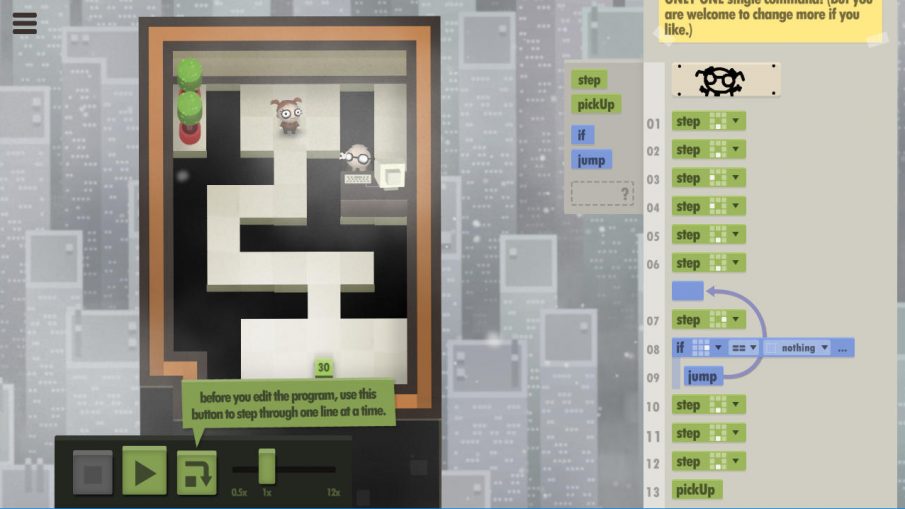
^ "World of Goo creators release satirical puzzle game 7 Billion Humans". ^ "World of Goo developer reveals its next game: 7 Billion Humans". ^ "World of Goo developer Tomorrow Corporation announces 7 Billion Humans for Switch and PC". ^ "Tomorrow Corporation's latest puzzler is 7 Billion Humans". ^ "7 Billion Humans sera disponible demain sur PC, Mac et Linux". "Tomorrow Corporation's 7 Billion Humans is out now". Other puzzles are fully optional, requiring more advanced techniques to solve. Most levels provide two optional challenges, to beat the average steps and average seconds with optimization of their program these are sometimes diametric goals and do not need to be completed within the same program. Otherwise, the player is then ranked on the number of program steps they have, and the number of seconds (cycles) it takes for the program to complete, measured against average marks determined by Tomorrow Corporation. Once a player achieves a working solution for a given problem, the game will then simulate 25 additional cases where random factors (such as values of data cubes) change, which might cause a program to fail and require the player to account for that. The player is able to step through the program and select any individual human to watch their progress through the program for debugging purposes. 
The humans will run through the program until either the program solution is met, or all the humans reach the end of the program and the problem solution is not met, in which case the player must rework the program.

The same program is used to control all humans simultaneously, while allowing each human to follow its individual logic through the project based on their current state, such as moving left or right based on comparing the value of the data cube they are holding. As with its predecessor, the code can be edited in a textual form by copying-and-pasting. The programming language is similar to assembly language, allowing for simple loops, logic, memory storage and calculations. For example, a task might ask the player to program the humans to sort the numbers on data cubes in order.

Similar to Human Resource Machine, players are tasked with over 60 programming puzzles, typically involving the movement of numerical data cubes by human workers.







 0 kommentar(er)
0 kommentar(er)
